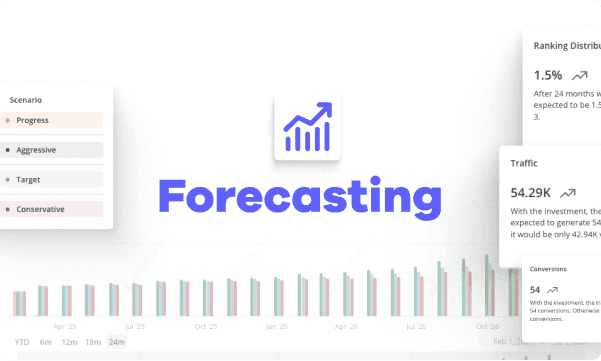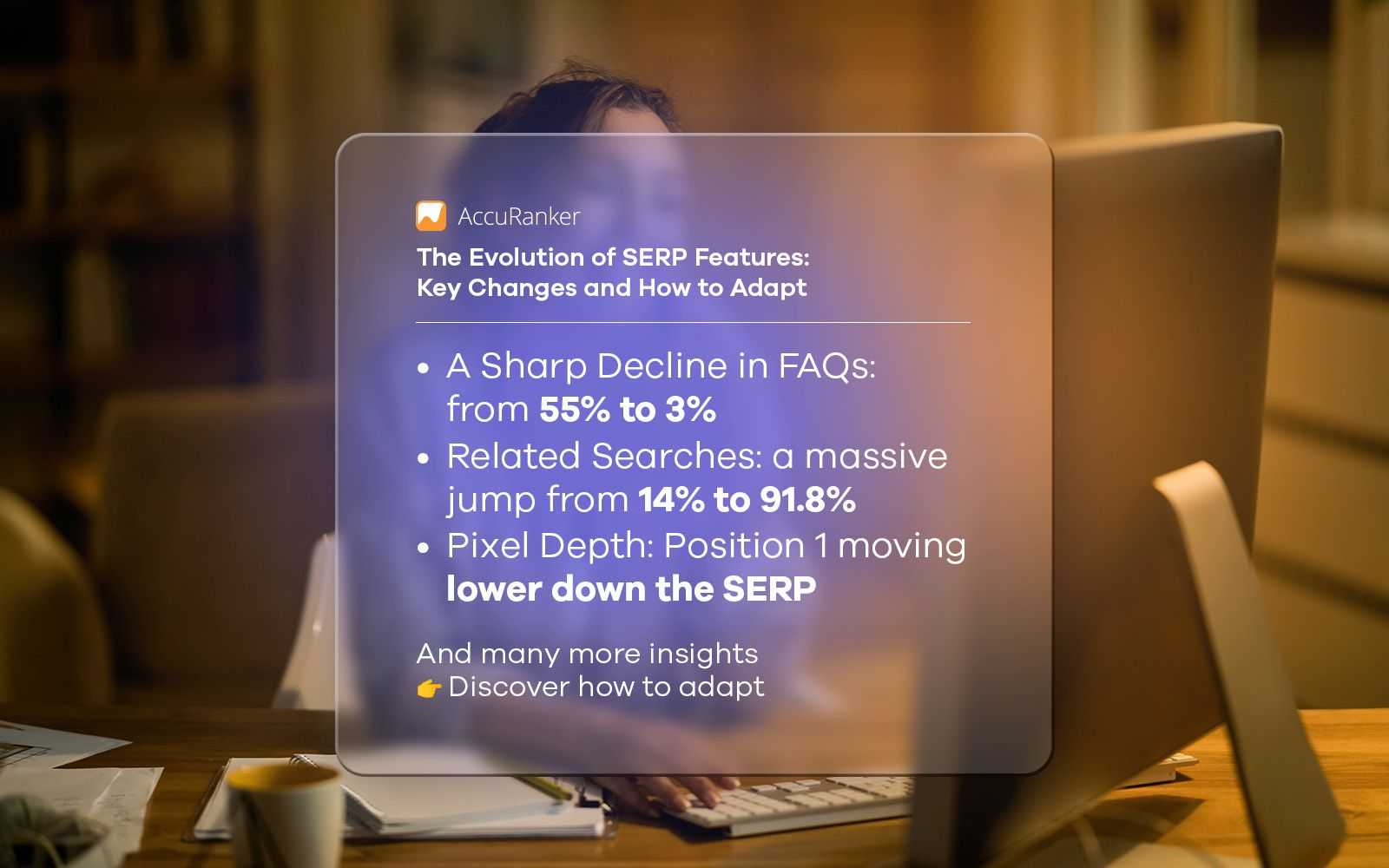“People also search for” & How to use it for SEO
Last updated on Sunday, February 25, 2024

Google is the leading search engine, holding a global market share of 91.9%. It is the most visited website, which recorded 86.3 billion visits in a single month (August 2023). Staggering numbers, right?
Google’s foremost priority is to provide the most accurate and relevant search results so that users keep using it as their go-to search engine. That is why it keeps experimenting with new features that enable users to conclude their search experience as soon as possible. One such feature is “People Also Search For” which was rolled out by Google in early 2018.
Most of you would already be familiar with the feature. After all, it is a crucial part of Google’s search engine design strategy. However, only a few marketers realize this tool’s importance for SEO.
Today, we will explore the tool and understand how you can use it to drive more traffic to your website, and ultimately, boost your SEO.
Understanding “People Also Search For”
“People Also Search For” or PASF is a unique Google feature aimed at helping users find the exact information they are looking for.
Here is how it works:
When a user searches for a keyword, Google displays the most relevant web pages. Now let’s say the user clicks on one of the results, but within a few seconds, bounces back to the main search page.
If this happens, Google assumes that the search result did not satisfy the searcher’s query. So, to improve the user experience, it shows the “People also search for” snippet right under the webpage link the user clicked.

Source:: Keywordseverywhere
This snippet contains relevant keywords that other users have used while searching for the topic. And for SEO, this is a goldmine.
Note: PASF is different from “Related Searches” on Google, which typically appears at the bottom of the search page. Also, PASF offers related topics that other users are actively searching for. These topics may not always directly connect to your initial search but are somehow always related.

Source: Outreachmonks
Why “People Also Search For” Matters for SEO?
Now onto our next question- why should you care about PASF keywords?
Well, PASF keyword results aren’t random. They are highly intentional and tactically chosen phrases from Google’s database. They are the search queries your target audience frequently uses to search more about your topic.
Taking note of these keywords can help you understand your audience’s interests and preferences. Consequently, businesses can optimize their website design and content marketing strategies to generate efficient results.
Often, integrating PASF keywords into your content can prove to be even more valuable as it directly addresses what the users are looking for.
Moving on, here are three ways in which PASF facilitates SEO:
· Assess user intention
· Determine how consumers look for your goods or services
· Discover new keywords
Leveraging “People Also Search For” for Keyword Research
PASF is an extremely valuable tool to discover new keywords. The related keywords that appear in the box can point you in the right direction for long-tail and short-tail keywords.
Each PASF result yields between 2 and 8 suggestions, so you get a decent idea of what people are searching for.
Here’s how you can utilize PASF for keyword research:
· Run a Google search for the keywords you have in mind and note the corresponding suggestions that appear. Remember, each search will probably yield different keywords, so perform the action repeatedly to have a list of relevant ideas.
· Once you have a list ready, copy the suggestions on new tabs to begin a search for each keyword. Check the content quality of search results to determine each keyword’s strengths.
· Use PASF keywords on a reputed keyword research tool to identify their search volume and ranking difficulty. Also, check associated keywords to get comprehensive results.
Additionally, there is a free browser extension for Firefox and Chrome- Keywords Everywhere, which automatically gathers all PASF keywords from the search results. It provides the monthly search volume data directly from the Google Keyword Planner, making it a highly effective and reliable tool.

Source: Searchfacts
Implementing “People Also Search For” for Content Ideation
PASF can come in handy when you are out of content ideas.
Search for your target topic on Google to find the PASF keywords. Let’s say your keyword is sales automation. PASF keywords for this phrase may include “sales tracking software,” “sales pipeline automation,” and “marketing and sales automation.”
Next, search for each keyword in a different tab to identify top-ranking pages. Scour these pages to find new and unique content ideas.
The greatest advantage of using PASF keywords for new content ideas is that it helps you enhance your website’s relevancy by covering your niche from all possible angles.
When you offer high-quality content on all related keywords, it increases your website’s authority. This, in turn, drives greater website traffic.
Optimizing On-Page SEO with “People Also Search For”
On-page SEO strategies entail activities that help you improve your website’s ranking.
Once you have a list of PASF keywords, you can incorporate them to optimize your content and boost your website’s on-page SEO strength.
Here are the five places where you can position PASF keywords to rank higher:
· Website title
· H1, H2 and H3 tags
· Meta description
· Webpage images
· User-friendly URLs
Following these tips can improve your chances of ranking well in search results and attracting more organic traffic to your website. You can also regularly track website visitors to ensure your PASF keywords are performing effectively.
Outranking Competitors using “People Also Search For”
Using the PASF box, you can analyze what your competitors are doing and easily outrank them.
Start by exploring which of your opponents show up at the top of search results for each PASF keyword that you wish to target.
Next, check out the themes these businesses are writing about. Closely examine their content, including H1, H2, and H3 tags, and the information they are putting out to secure the leading spot.
For instance, let’s say your business offers an AI-powered chatbot solution and you aim to rank for the search term “how to choose an AI chatbot solution.” Study the top-ranking competitor’s content. Check out all the PASF keywords for the term, such as AI-powered chatbots, benefits of AI, etc.
Develop comprehensive content that goes beyond what competitors offer, providing additional insights along with unique sections not found in existing top-ranking blogs. This can help you potentially outrank your top competitor.
Technical Considerations and Best Practices
“People Also Search For” is a valuable tool for businesses looking to boost their SEO strategy. However, there are certain technical considerations and best practices that must be kept in mind for optimal user experience.
· Pay attention to search intent
Getting the search intent for a specific PASF keyword is crucial. You can discover that by simply searching for a keyword on Google.
For instance, if you search for “keyword research tools”, you can see that the top four ranking web pages are articles about “Best X Keyword Research Tools.”

This demonstrates that Google likes to rank articles, for this keyword, that discuss the best keyword research tools. This is deemed as the search intent people have when searching for this term.
If you create an article about ”How to Choose the Best Keyword Research Tool” it may not rank well for this term. So, understanding search intent is extremely important before you implement any PASF keywords.
· Ensure seamless keyword integration and content relevance
Integrate PASF keywords naturally within your content. Make sure they are contextually relevant to the main topic of your page.
When creating content, try to address the queries or provide information that aligns with the PASF keywords. This not only boosts your overall SEO but also enhances the user experience by answering related queries.
Lastly, create content that adds value to users. Avoid keyword stuffing by using variations or synonyms of the keyword. For example, if your keyword is “job data” you can use variations like “employment data” or “labor market information” to avoid overstuffing the PASF keywords.
· Avoid duplicate PASF topics
You must avoid duplicate PASF topics or keywords within the same piece of content. Duplicate keywords can have negative consequences for your SEO efforts and the overall user experience.
Make sure your website design has only one landing page for all related queries. Use canonical tags to inform Google which version of a webpage you want to see in the SERPs. This will combine link equity from replicated pages and make your website easier for indexers and crawlers to navigate.
Measuring Success and Adapting Strategies
SEO is an ongoing process. You must constantly monitor and optimize your keyword strategy as users’ search queries evolve with time. Fortunately, there are plenty of analytic tools that can help track and analyze your SEO performance.
You can use tools to evaluate how your website performs for the keywords that appear in the “People Also Search For” section.
Here are five key metrics that you must regularly track:
· Impressions
· Click-through rate
· Conversion rate
· Average time on page
· Bounce rate
Evaluating these metrics will ensure you constantly fine-tune your SEO strategy and stay on top of your game.
Conclusion
“People Also Search For” is a strategic way for marketers to discover new and relevant keywords. The tool provides information that is directly provided by Google. It doesn’t come from any keyword research tool, making it immensely valuable.
PASF keywords also offer deep insight into what people are searching for and how they are phrasing their queries. Thus, businesses can use this information to develop content that matches their target audience’s needs and interests.

Article by:
Yash Chawlani
Digital Marketing Specialist
Yash Chawlani is your go-to digital marketing specialist and founder of Merlin, a performance-driven marketing agency. With over 7 years of experience, Yash has worked with some big names like Elementor, G2, and Snov, just to name a few, to boost their online presence. When he's not diving into the latest marketing trends, you'll either find him at the gym or on the football field.


